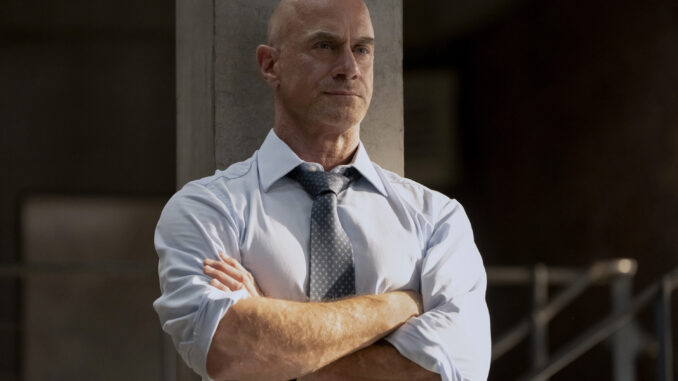
The Quiet After the Storm: Christopher Meloni Envisions a Perfect Ending for Benson and Stabler
The very mention of their names – Benson and Stabler – conjures a quarter-century saga of partnership, trauma, unspoken affection, and an unwavering fight for justice. For millions, Olivia Benson and Elliot Stabler are not merely characters but an indelible part of the television landscape, their bond the beating heart of Law & Order: SVU and now, for Stabler, Organized Crime. The question of their “perfect ending” has fueled fan fiction, speculation, and fervent hope for years. When Christopher Meloni, the man who embodies Elliot Stabler, lends his voice to this vision, it’s not just an actor’s musing; it’s a profound reflection on the soul of these characters, offering an illustrative glimpse into a conclusion that would resonate deeply with their extraordinary journey.
Meloni’s vision, as gleaned from various interviews (including the sentiment behind the “md07” reference, likely a date or source of his initial thoughts), rarely describes a grand, sweeping romantic gesture. Instead, it hints at something more profound, more earned, and ultimately, more them. It’s not about fireworks or a declarative kiss that ties a neat bow on decades of simmering tension. It’s about the quiet after the storm, the unspoken understanding, and the shared peace that finally descends upon two souls who have witnessed humanity’s darkest corners.
Imagine this: The final case is closed. Not a spectacular, high-stakes shootout, but a meticulously woven investigation that brings down a sprawling, insidious network, perhaps one that touches upon the very systemic injustices Benson and Stabler have fought against their entire careers. The air in the squad room isn’t celebratory with champagne, but thick with a different kind of relief – the kind that comes from truly making a difference. Olivia, perhaps now the Chief of Detectives, or even contemplating retirement from the force itself, is seated at her desk, the usual organized chaos around her. Elliot, having navigated his own complex personal and professional rebuild, stands by the doorframe, a familiar silhouette.
He doesn’t need to speak. She looks up, her eyes, which have seen so much pain and triumph, meet his. In that gaze, there’s the history of every victim saved, every perpetrator brought to justice, every late night coffee, every shared moment of despair and triumph. There’s the memory of Kathy’s death, of the letter, of the grief they carried separately and then together. But in this final look, there’s also something new: a lightness, a sense of having finally laid down their heaviest burdens.
Meloni’s “perfect ending” isn’t necessarily about a wedding or a domestic bliss that erases their past. It’s about the choice to build a future, not out of obligation or necessity, but out of a deep, resonant understanding of who they are to each other. Perhaps it’s a scene where they are no longer actively on the job, but sitting on a porch somewhere, a quiet house overlooking a landscape far removed from the city’s concrete canyons. They’re not discussing a perp or a victim; they’re discussing something mundane, beautiful, normal. Elliot might be whittling something, his hands, once so quick to draw a weapon, now engaged in a peaceful act. Olivia might be reading, occasionally glancing up to simply observe him, a soft, contented smile playing on her lips.
This isn’t a betrayal of their professional identities; it’s a culmination. It signifies that they have earned this peace. After decades of exposing evil, of being consumed by the darkness, they have found a way to not just survive, but to truly live. Their perfect ending is rooted in the idea that the profound love between them, a love that transcended labels for so long, finally has the space to breathe and simply be. It’s a love forged in fire, tempered by trauma, and ultimately, strong enough to build a sanctuary.
In this illustrative vision, Meloni suggests an ending that acknowledges the brutal reality of their world but dares to imagine a future where empathy, justice, and connection ultimately prevail, not just for the victims they’ve championed, but for themselves. It’s an ending that respects their individual arcs – Olivia’s journey to leadership and self-discovery, Elliot’s return from the wilderness of grief and anger – and unites them not as a fan-service fantasy, but as two complete, whole individuals choosing to face the twilight years hand-in-hand, finding their own quiet after the storm, finally and completely, together. It’s an ending that honors their legacy by giving them the one thing they’ve tirelessly fought for others to have: a chance at peace.
